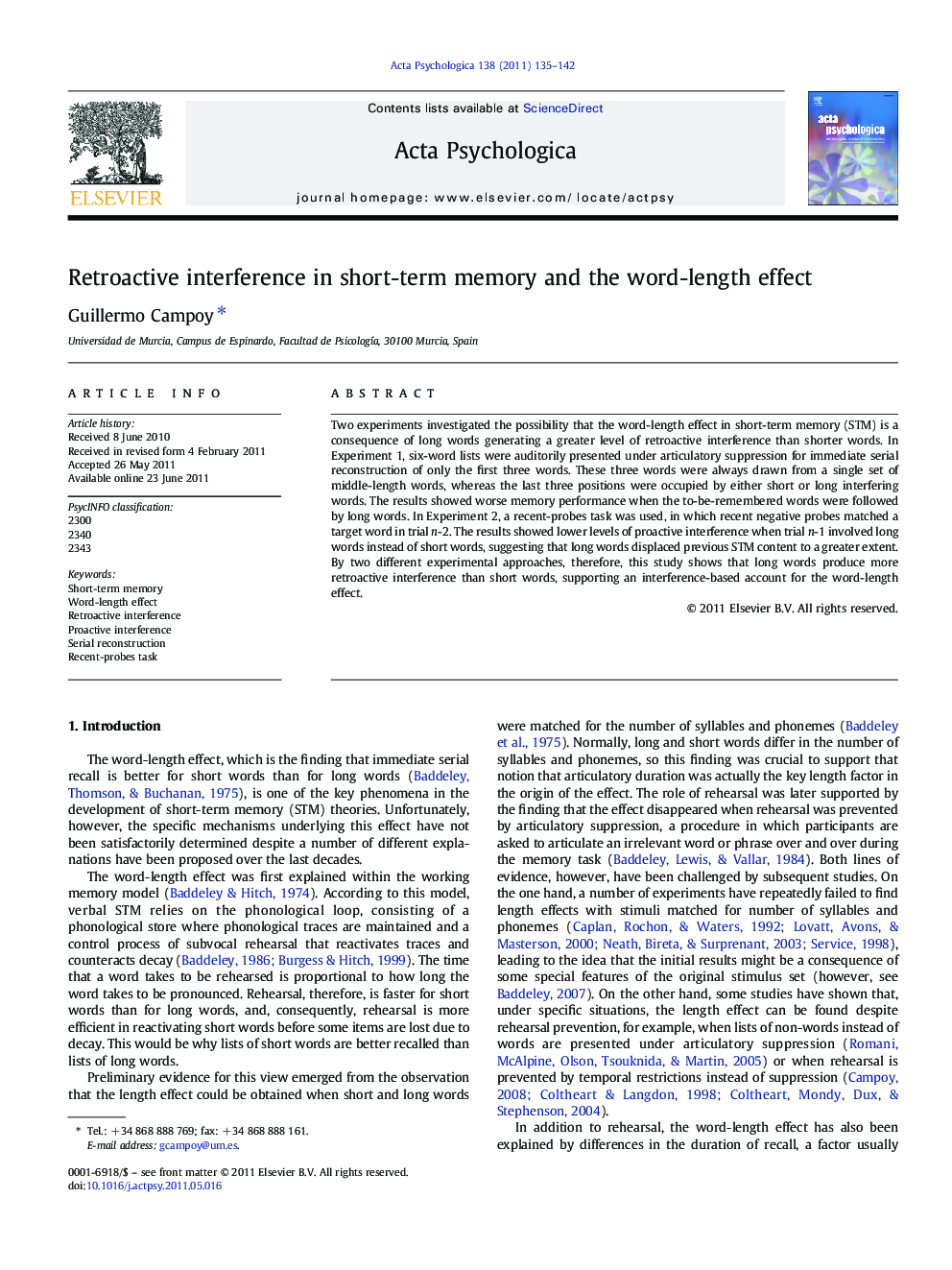| Article ID | Journal | Published Year | Pages | File Type |
|---|---|---|---|---|
| 920181 | Acta Psychologica | 2011 | 8 Pages |
Two experiments investigated the possibility that the word-length effect in short-term memory (STM) is a consequence of long words generating a greater level of retroactive interference than shorter words. In Experiment 1, six-word lists were auditorily presented under articulatory suppression for immediate serial reconstruction of only the first three words. These three words were always drawn from a single set of middle-length words, whereas the last three positions were occupied by either short or long interfering words. The results showed worse memory performance when the to-be-remembered words were followed by long words. In Experiment 2, a recent-probes task was used, in which recent negative probes matched a target word in trial n-2. The results showed lower levels of proactive interference when trial n-1 involved long words instead of short words, suggesting that long words displaced previous STM content to a greater extent. By two different experimental approaches, therefore, this study shows that long words produce more retroactive interference than short words, supporting an interference-based account for the word-length effect.
► Two experiments investigate the mechanisms underlying the word length effect in STM. ► Longer interfering words resulted in greater displacement of previous STM contents. ► An interference-based account for the word-length effect is supported.
